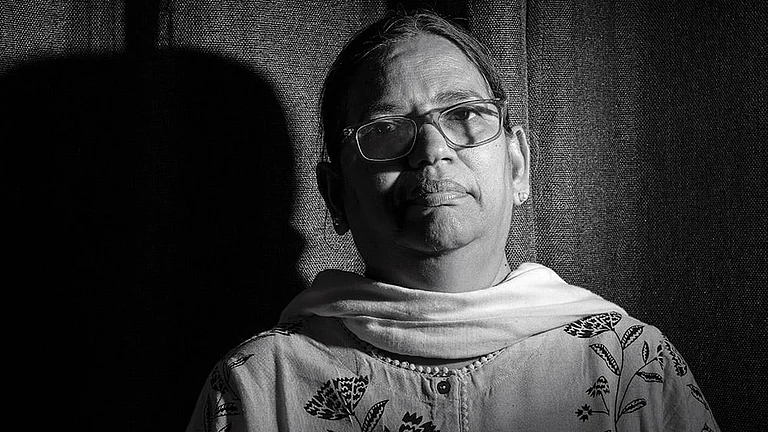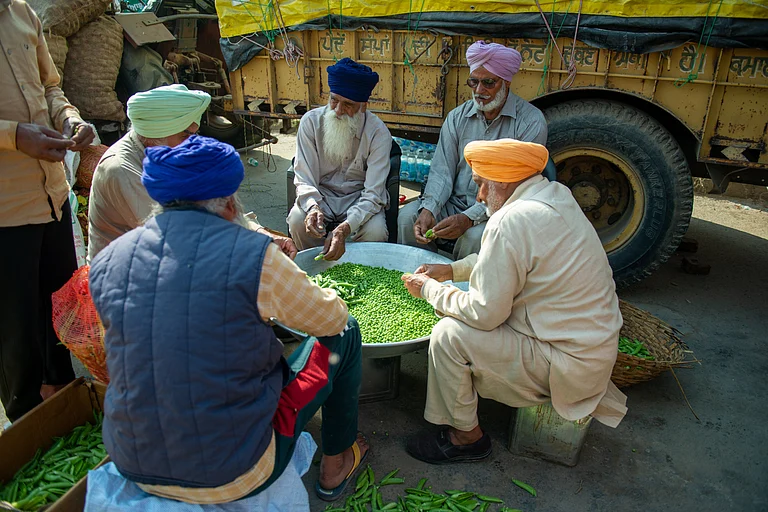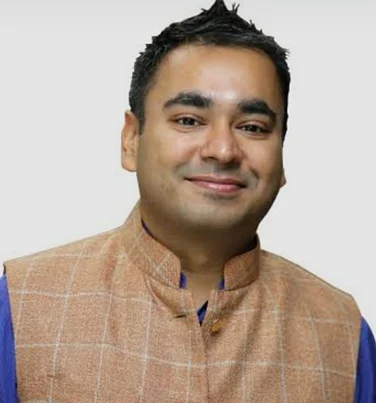Guru Nanak Dev Ji, the founder of Sikhism, was born in 1469 in Nankana Sahib (now in Pakistan). He laid the foundation of Sikhism and became the first of nine gurus. As Guru Nanak Jayanti or Guru Parab, the birthday of Guru Nanak or Baba Nanak, is fast approaching, the Sikh people are excited to celebrate their most important festival with great enthusiasm. Guru Nanak spread the sacred message of Ik Onkar, which means one god who dwells in all his creations and constitutes the eternal truth. His teachings, rooted in love, equality, service, and devotion to the Divine, have transformed countless lives over centuries. Here in this article, take a look at his life-changing teachings:
Teachings of Guru Nanak Dev Ji
Ik Onkar
Phrase: “Ik Onkar, Satnam, Karta Purakh” This mantra emphasizes the oneness of God and the eternal truth that God is the creator of all.
Ik Onkar, Satnam, Karta Purakh, Nirbhau, Nirvair, Akal Murat, Ajuni Se Bham, and Guru Prasad are the prominent mantras given by Sri Guru Nanak Dev Ji. One of the most revolutionary teachings was the concept of Ik Onkar, which was given by Nanak ji and meant one supreme reality. This mantra of Nanak ji taught us that God is not limited to any one religion, gender, or form. Instead, there is only one God, who is formless, omnipresent, and accessible to everyone, regardless of caste or creed. By understanding the oneness of God, Guru Nanak encouraged people to look beyond the differences of race, religion, and ethnicity and to see the divine presence in everyone.
Equality for All
Phrase: “Mitti da Putla, Sabh Ikko Hai”, This phrase means all are made from the same clay,” emphasizing that there is no inherent difference between genders; both men and women possess equal worth.
Guru Nanak believes in equality, and for him, humanity is above the caste system. According to him, all humans are equal and should be treated equally. He criticizes social hierarchies, caste-based discrimination, and the subjugation of women, advocating for equality in all aspects of life. The practice of langar in the Gurudwaras was initiated by Guru Nanak Ji, where people of all backgrounds rich, poor, high caste, and low caste—could sit together and share a meal. This act of communal dining was a direct challenge to the rigid caste divisions of the time.
Vand Chhako
Phrase: “Vand Chhako” This teaching encapsulates the idea of sharing one's blessings with others, reinforcing the importance of community and generosity.
Another great teaching of Guru Nanak Dev Ji is Vand Chhako, which means sharing is caring. Guru Nanak Ji said, “With the blessing of the Lord, whatever you have received, share it with the one who needs it the most and then consume." So, remember to share whatever you can with the needy, and then it’ll be even more fruitful for you.
Kirat Karo
Phrase: “Kirat Karni”, this principle advocates for honest work and earning a livelihood through integrity, emphasizing that one's actions should align with ethical values.
Guru Nanak Dev Ji taught us the importance of earning an honest livelihood through hard work and integrity. He believed that wealth gained through deceit or exploitation would never bring true happiness or contentment. He propagated the idea that all humans need to earn their living through honest means. Kirat Karni: earn with honesty and not by fraud. Guru Nanak opposed idleness and deceit, stressing that spiritual life must be integrated with an honest, ethical approach to earning a living.
Selfless Service (Sewa)
Phrase: “Seva Karna Hai, Par Upkaar Nahi Chahida” Meaning "Serve selflessly, without expecting anything in return," this highlights the essence of selfless service as a way to connect with the divine.
One of the precious principles of Guru Nanak is selfless service. Nanak firmly believes in and practices the virtue of selfless service. He emphasized that serving humanity is one of the most direct ways to serve God. Seva can be performed in various ways, from feeding the hungry and helping the poor to maintaining community spaces and offering one’s skills to those in need.
Sarbat Da Bhala
Phrase: “Sarbat da Bhala” means welfare of all, reflecting Guru Nanak's vision of universal brotherhood and compassion for all humanity.
Nanak believes in universal brotherhood and emphasises that all humans are part of a single, large family. His message of Sarbat Da Bhala, or the well-being of all, speaks to the importance of looking out for one another and wishing good for all, not just for oneself. He taught that true spirituality lies in serving others with love and kindness. Compassion was not to be reserved for one’s family or community but for all of humanity. By fostering love and empathy, Guru Nanak sought to create a world where no one suffered from hunger, poverty, or injustice.
Empowerment of Women
Phrase: “So kyun Manda Aakhiye Jit Janmain Rajjan” means “Why call her bad? From her, kings are born,” this statement underscores the equality of women and challenges societal norms regarding gender.
Guru Nanak was a strong advocate for the dignity and equality of women. He believes in respecting women and has said why disrespect the women who give birth to the majestic king of the world. In an era where women are treated as inferior, he encouraged women to participate in religious activities and leadership, emphasizing that they have the same spiritual potential as men. He believes in gender equality and declares that in the eyes of the creator of this universe, men and women are equal.
These teachings of Guru Nanak Dev Ji are enshrined in Guru Granth Sahib (the holy book of Sikhism). These teachings offer a path toward a more compassionate, equal, and spiritually fulfilling life. His philosophy transcends religious labels and speaks to universal human values, making his message timeless and relevant even in today’s world. By embracing his principles of equality, selflessness, honest living, and devotion to the Divine, individuals can transform their lives and contribute to the greater good of society.
Guru Nanak's teachings encourage us to rise above narrow identities to see the oneness of creation, and to serve others with love and humility ensuring a legacy that continues to uplift humanity across generations.



























